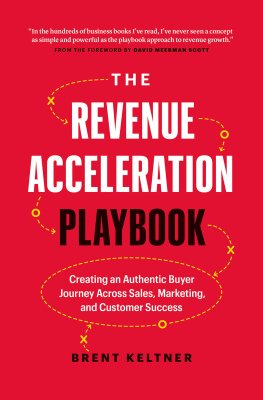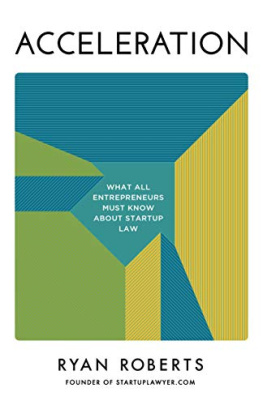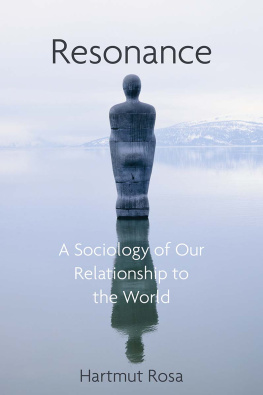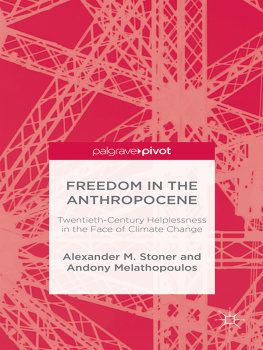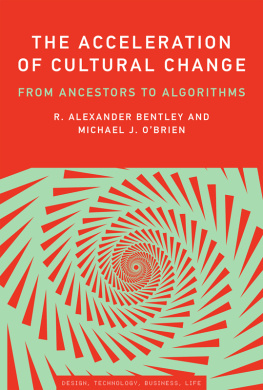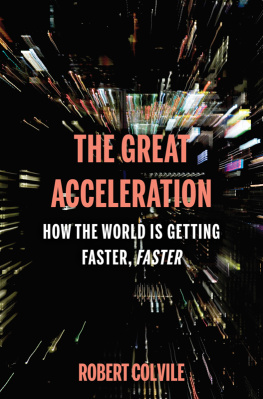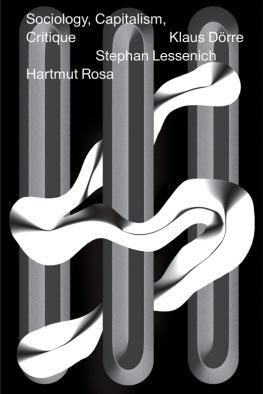SOCIAL ACCELERATION
NEW DIRECTIONS IN CRITICAL THEORY
NEW DIRECTIONS IN CRITICAL THEORY
Amy Allen, General Editor
New Directions in Critical Theory presents outstanding classic and contemporary texts in the tradition of critical social theory, broadly construed. The series aims to renew and advance the program of critical social theory, with a particular focus on theorizing contemporary struggles around gender, race, sexuality, class, and globalization and their complex interconnections.
Narrating Evil: A Postmetaphysical Theory of Reflective Judgment, Mara Pa Lara
The Politics of Our Selves: Power, Autonomy, and Gender in Contemporary Critical Theory, Amy Allen
Democracy and the Political Unconscious, Nolle McAfee
The Force of the Example: Explorations in the Paradigm of Judgment, Alessandro Ferrara
Horrorism: Naming Contemporary Violence, Adriana Cavarero
Scales of Justice: Reimagining Political Space in a Globalizing World, Nancy Fraser
Pathologies of Reason: On the Legacy of Critical Theory, Axel Honneth
States Without Nations: Citizenship for Mortals, Jacqueline Stevens
The Racial Discourses of Life Philosophy: Ngritude, Vitalism, and Modernity, Donna V. Jones
Democracy in What State? Giorgio Agamben, Alain Badiou, Daniel Bensad, Wendy Brown, Jean-Luc Nancy, Jacques Rancire, Kristin Ross, Slavoj iek
Politics of Culture and the Spirit of Critique: Dialogues, edited by Gabriel Rockhill and Alfredo Gomez-Muller
The Right to Justification: Elements of Constructivist Theory of Justice, Rainer Forst
The Scandal of Reason: A Critical Theory of Political Judgment, Albena Azmanova
The Wrath of Capital: Neoliberalism and Climate Change Politics, Adrian Parr
SOCIAL ACCELERATION
A NEW THEORY OF MODERNITY
Hartmut Rosa
Translated by Jonathan Trejo-Mathys
COLUMBIA UNIVERSITY PRESS NEW YORK

COLUMBIA UNIVERSITY PRESS
Publishers Since 1893
New York Chichester, West Sussex
cup.columbia.edu
Beschleunigung: Die Vernderung de Zeitstrukturen in der Moderne copyright 2005 Suhrkamp Verlag Frankfurt am Main
English translation copyright 2013 Columbia University Press
All rights reserved
E-ISBN 978-0-231-51988-5 (e-book)
Library of Congress Cataloging-in-Publication Data
Rosa, Hartmut, 1965
[Beschleunigung. English]
Social acceleration: a new theory of modernity / Hartmut Rosa; translated by Jonathan Trejo-Mathys.
p. cm.(New directions for critical theory)
Includes bibliographical references and index.
ISBN 978-0-231-14834-4 (cloth: alk. paper)ISBN 978-0-231-51988-5 (e-book)
1. Time perception. 2. Time pressure. 3. TimeSociological aspects. 4. Social change. 5. Civilization, Modern21st century. I. Trejo-Mathys, Jonathan. II. Title.
HM656.R6713 2013
303.4dc23
2012029515
COVER ART: Joseph Mallord Turner, Rain, Steam, and SpeedThe Great Western Railway, 1844. National Gallery, London/Art Resource, NY
COVER DESIGN: Catherine Casalino
A Columbia University Press E-book.
CUP would be pleased to hear about your reading experience with this e-book at cup-ebook@columbia.edu.
References to Web sites (URLs) were accurate at the time of writing. Neither the author nor Columbia University Press is responsible for URLs that may have expired or changed since the manuscript was prepared.
CONTENTS
Figures
Tables
The most insignificant man can be complete if he works within the limits of his capacities, innate or acquired; but even fine talents can be obscured, neutralised, and destroyed by lack of this indispensable requirement of symmetry. This is a mischief which will often occur in modern times; for who will be able to come up to the claims of an age so full and intense as this, and one too that moves so rapidly?
JOHANN WOLFGANG VON GOETHE, Maxims and Reflections
THE DRASTIC SOCIAL TRANSFORMATIONS THAT accompanied the industrial revolution forced themselves on the attention of any half-awake observer of nineteenth-century society, but it took the rise of the sociological imagination with thinkers like Karl Marx and Alexis de Tocqueville to discern the hidden connections between various surface phenomena of the new dispensation. Events like the sudden economic collapse of the centuries-old craft of the Silesian weavers, for no reason apparent to local German observers, prodded acute and probing intellects like Marxs to uncover the far-flung, transnational causal nexus of the newly expanding modern capitalist economy and its revolutionary power to reorganize human social and political relationships. it would be a long time before someone systematically worked up these scattered insights of the sociological tradition into the provocative and challenging thesis that social acceleration is the key to understanding modernity and the modernization process. The substantiation of this claim is the burden of Hartmut Rosas Social Acceleration. In addition, it aims to be a methodological demonstration that an acceleration-theoretical starting point possesses a unique capacity to simultaneously illuminate other more conventional or familiar dimensions of modernity.
Such a thesis will inevitably have something of the paradoxical air that surrounds many characteristically sociological insights. It will seem intuitive to the extent that the experience of things moving too fast, of there simply not being enough time to do everything one is called upon to do, and of the almost vertiginous technological change in everyday life is almost universal in modern societies. But it will seem counterintuitive in that the notion that these widely strewn experiences in diverse domains of social life might be connected by one single hidden thread is hardly something suggested by common sense. To help in this regard, in the next section I survey some recent examples of social acceleration that illustrate the way its consequences are anything but a trivial matter. In addition, I will show how the concerns at the heart of the book, though quintessentially modern, have deep roots in Western social and political thought before moving on to a summary of the striking and counterintuitive connections embodied in the basic claims of Rosas theory of acceleration. Then I turn to discuss the distinctive contribution Rosas work can make to a broader moral-philosophical debate concerning the key normative concepts of the right and the good and the relative weight they ought to bear in critical social theorizing. Last, in the final section I briefly indicate two lines along which the critical theory outlined in Social Acceleration has been and continues to be further developed.
SOCIAL ACCELERATION: SOME EXAMPLES
In the wake of the worldwide financial crisis of 2008 and the global economic recession that followed it, obscure, complicated financial instruments like credit default swaps, collateralized debt obligations, and the now notorious species of derivative, the mortgage-backed security, became household words.
Although such acceleration does not per se lead to inevitable catastrophe, portents of the potential damage that might result were witnessed on the afternoon of May 6, 2010, when the Dow Jones Industrial Average plunged 700 points in seven minutes. There had not been such a great loss in such a short period of time since the great crash of October 1987. This time, however, after billions in share values had been lost almost in an instant, the market just as rapidly regained its preplunge levels. After a report traced the main trigger of Mays big crash to a poorly timed trade by a mutual fund in Kansas, the response of regulators was to put in place circuit breakers to halt trading and reset prices in case stocks plunge. Yet since that time there have been scores of mini flash crashes of individual stocks. To give just one example, four months later the value of Progress Energy, a 107-year-old utility company with 3.1 million customers and 11,000 employees, dropped 90 percent and was almost wiped out in a matter of seconds. Neither its executives nor active traders in the utility markets had any idea why. It later became clear that a wayward keystroke by a trader somewhere had unleashed a powerful computer algorithm that had devoured Progress Energys stock in moments. The resulting trades were canceled out and the damage was undone. But many are worried that these phenomena are signs that larger-scale crashes could occur and wreak damaging havoc in electronic markets that are paradoxically both highly integrated and very fractured.
Next page


